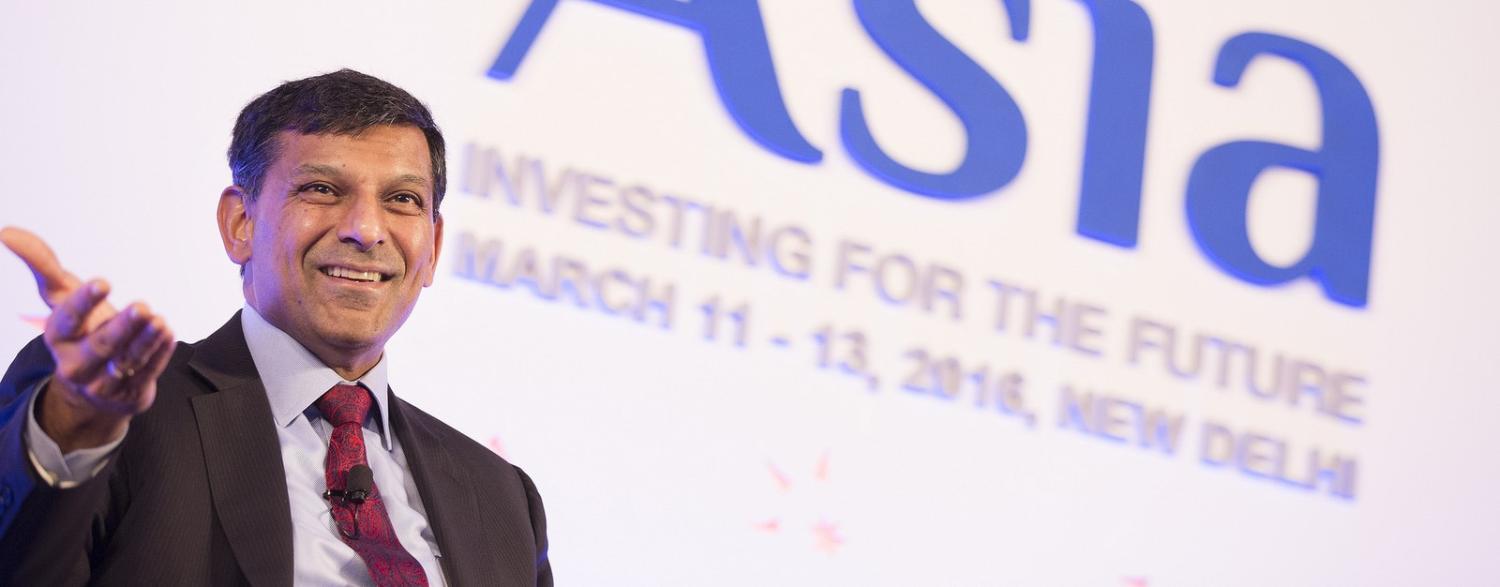Raghuram Rajan, the well respected governor of the Reserve Bank of India, has decided to return to academic life at Chicago University when his three year tenure comes to an end in September this year.
In announcing this well before the due date, Rajan has pre-empted what would have been a controversial government exercise on deciding whether he should be extended for another two years, as has been the case with most of his predecessors; or whether a successor should be selected instead.
Rajan has been acknowledged as one of the most professionally qualified persons to head the central bank in recent years and his management of India's financial and banking sectors has drawn praise both at home and abroad. From being billed as part of the 'Fragile Five' in 2013, when Rajan took charge, to being one of the few bright spots in an otherwise dismal global economic landscape, India owes much to Rajan's efficient and confident stewardship. The fact that Rajan came to this assignment as a highly respected and acclaimed economist gave him a high degree of credibility in international business and financial circles.
This proved to be an important, though intangible, asset to an Indian government seeking to convince an often sceptical international audience that India was embarked on a serious and substantial reform path. Rajan's mere presence at the helm of the central bank, seemed to suggest that India could for once be a good bet for investors.
Rajan's international reputation shone brighter than his domestic image. Business leaders constantly complained about him persisting with a relatively high interest rate regime as part of his anti-inflation strategy. His insistence that public sector banks own up on their expanding non-performing assets and clean up their balance-sheets struck at the roots of a crony culture where banks and big business together undermined an efficient market based economy. [fold]
But what may have lost him support in the present Modi Government may have been his outspokenness on issues unrelated to economic management. His strong defence of India's plural and democratic values and his implicit criticism of some of the manifestations of sectarianism and intolerance may have angered some of the more ideologically motivated elements in the ruling party. The open and unseemly personal attacks made on Rajan by the BJP Member of Parliament, Subramaniam Swamy, seemed to suggest as much. Some critics of Rajan have suggested, perhaps with some justification, that as a central bank governor he should have maintained a low public profile and concentrated on matters relating to his own mandate, rather than venture into a contested public space.
In any event, Rajan's departure is not good news at a time when the global economy seems destined to be buffeted by another bout of volatility thanks to uncertainties related to Brexit, China's economic slow-down and continuing economic stagnation in the US and Europe. In dealing with such volatility and unexpected macro-economic instability, Rajan's continuing and tested stewardship would have inspired confidence and projected an air of predictability. As we have seen, perceptions count.
Rajan's announcement of his imminent departure was followed almost immediately by the government announcing of a slew of economic reforms, some potentially quite significant. It is tempting to think that the latter was timed to counteract or neutralise the possible negative impact of the former, at least on international audiences. In fact, these reforms were being deliberated upon for quite some time and decision on them preceded Rajan's announcement. The latest reforms have expanded the scope of foreign direct investment in defence, civil aviation, broadcasting services, the pharmaceutical sector and processing and retail in agricultural products . They have been justified in terms of job creation and technology infusion.
However, social and labour organisations associated with the ruling party have attacked these reforms as a 'betrayal'. There is a strong and deeply ingrained suspicion of foreign investment within sections of the BJP, which espouse self-reliance instead. It remains to be seen whether intra-party dissension sidetracks the reform process. This is what happened in the last years of the previous government, despite it being headed by a prime minister with impeccable reform credentials.
Whatever the reasons why these reforms were announced at this juncture they should be welcomed. India's economy can only benefit from greater openness and market friendly policies. Rajan may be leaving soon, but India will hopefully continue with his legacy of prudent macro-economic management by appointing a professional with a reputation for credibility and competence. This will be critical to the government's aim of pressing ahead with its reform agenda, in particular in the crucial banking and financial sectors.
Photo courtesy of Flickr user International Monetary Fund.
